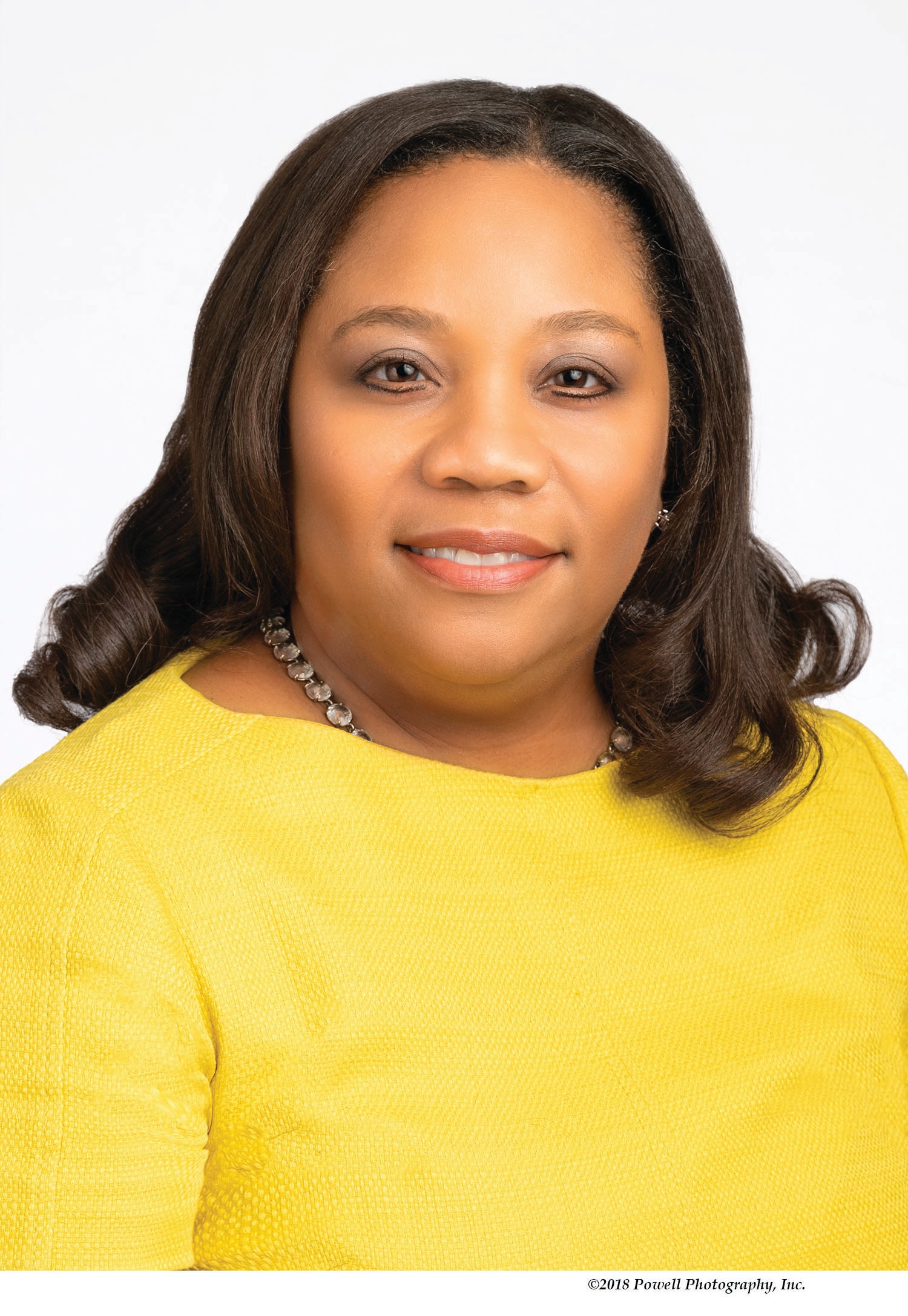
Adrienne Pitts
Managing Director and General Counsel
Loop Capital
Loop Capital’s Managing Director and General Counsel Adrienne Pitts has more priorities than just her job responsibilities. In every project she helps manage, she takes a keen interest in the diversity of the deal or litigation team.
Pitts has found that putting diversity first — literally making it an agenda item, if necessary — is one of the best ways to help increase diversity in law firms and the legal profession in general.
For many in-house lawyers, diversity, equity, and inclusion (DEI) work is symbolic. As Pitts puts it, they “get caught up on signing corporate diversity statements saying, ‘we’re committed to diversity,’ but the ranks of outside counsel they use remain predominately male and white.” While these efforts put DEI in the atmosphere, it stays off the agenda and thus, rarely acted upon.
After spending the first 20 years of her career in private practice, she is hyper-aware of the way junior associates need an advocate. Part of the reason she stayed in private practice so long was to help the lawyers behind her: “They didn’t see anyone else [who looked like me]. I was it,” she says, “so I felt a need to stick around, so that they could see that they could do it too." They too could be a productive black equity partner in an international law firm. Pitts was, in fact, a partner in three major law firms, and witnessed the elevation of several black law partners during her tenure, but not nearly enough.
Now in-house and in the driver’s seat, Pitts is more focused on increasing diversity in tangible ways, especially after the events of 2020.
In the wake of George Floyd’s death and the following protests, many symbolic actions were taken as gestures of anti-racism. “Black Lives Matter” signs dotted yards, Twitter pages pledged support and racial justice advocates tore down Confederate statues. Pitts agrees that these acts are important, but they only impact the surface level of racism. “You have to tear down or dismantle the systems that allowed that flag or that monument to stay there for centuries,” she says. Pitts has seen too much to be fooled by excuses for a lack of diversity. “When you come to me with an all-white male team, I know that you didn’t put any thought into it,” she says, noting that Loop Capital is one of the largest minority-owned investment banks and broker-dealers in the United States.
“I encourage in-house lawyers to use their voice and move beyond “diversity statements” and to think about how to really be active in that space,” Pitts says. “We have got to actually make it not just about who you appoint to the committee, but that the agenda itself says ‘diversity, equity, and inclusion.’”
What does it mean to be “active” in the diversity space?
Pitts recalls three experiences that happened during recent projects where she was able to directly impact the careers of diverse young associates by demanding diversity from their firm leadership.
Knowing your customer
Loop Capital is engaged in a high-profile real estate development joint venture in the heart of Chicago — in a community with a large Black population — yet chief counsel, selected before Loop joined the JV, assembled a team that was completely white men, according to Pitts. “I sent a very direct email that read ‘this basically cannot stand.’” She was especially concerned knowing that this firm was very experienced in the deal, and yet fielded such a team that did not reflect the historic nature of the neighborhood, nor the JV team members. Her email circulated around the firm, all the way to the top, and people began to pay attention. In response, the team put a woman at the helm, and moved a young black associate from elsewhere in the firm to their project.
Pitts received phone calls from the leaders of the firm who assured her that diversity was a priority, but her most prized communication from the ordeal was from the associate who was now working on the project. He called and thanked her for speaking up and said her actions would give him the chance to do the work he longed to do.
Vetting your partners
When her investment firm was poised to work with a particular law firm for a class action defense matter (again, a firm Loop did not select), Pitts took to the internet to see how diverse the firm looked. She took the names from all of the emails and searched the firm's Facebook. What she found were photos of predominately white men. So, she called the partner in charge of the matter and asked that the team better represent its clients and asked that they add a black associate.
The firm immediately responded that there was a diverse young woman working on the file, but that she had not been copied on any emails. Pitts recognized, having been in this associate’s shoes before, that if you lack visibility to the client, you cannot grow as an associate. Client contact is very important in associate development and important to getting on the partner track. This was remedied swiftly after Pitts spoke up. Soon, the diverse associate was not only copied on the defense group emails, but she has been penning them lately.
“If I had not said anything, they may have never given her that opportunity,” Pitts says, “I was proud to be able to move the needle for her.”
Paying it forward in Florida
More recently, Pitts represents the Magic Johnson Enterprises-Loop Capital Partners infrastructure fund on the legal oversight team assembled for a potential transportation infrastructure project, along with two other infrastructure firms’ general counsels. The consortium reviewed and evaluated the requests for proposals sent out to several firms.
Once one particular law firm rose to the top among the proposals, Pitts honed in on the lack of racial diversity within the firm’s ranks. The firm, to its credit, explained the challenges with its firm model in attracting such talent but agreed to work diligently to fix the situation, and in a timely fashion.
A few months later, Pitts received an email from the firm telling her they had hired a diverse summer associate from Howard University and would create a path for diverse lawyers to be recruited and retain because of the conversations Pitts had initiated. “I am just so proud that my speaking up particularly in these last two years has really made a difference,” she says.
“The only difference between diverse talent and majority talent is opportunity,” Pitts says, pointing out that law firms are the breeding grounds for corporations to find and hire in-house talent, which go on to become general counsel, CEOs, and corporate board members. "Actionable DEI and less symbolic DEI is what moves the needle and can provide intentional opportunities for talented racially diverse lawyers. We must act.”




